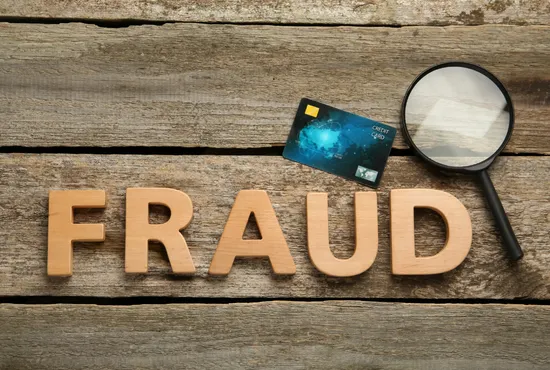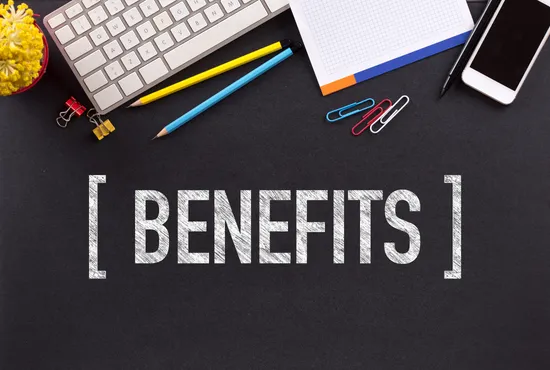
Universal Credit scam - DWP warns of new fraudsters' tactics
Universal Credit scams are a growing problem that many people need to be aware of. Scammers may try to use Universal Credit as a way to get your personal information or money from you. It is important to be informed and vigilant against these scams so that you can protect yourself and your family.
An ever-increasing number of fraudsters are taking advantage of a loophole in the Universal Credit system to gain advance payments up to £1,500. The Department for Work and Pensions first detected this scam during the global Covid-19 crisis, resulting in an alarming rise of benefit fraud by £2.8 billion since then.
In response to these tactics DWP has initiated a 'Fighting Fraud in the Welfare System' campaign, dedicated to preventing and tackling fraudulent activities. In addition, more people have been recruited for both new and existing Universal Credit claims.
What is Universal Credit?

Universal Credit is a payment system introduced by the UK government to streamline and simplify the existing welfare benefits system. It replaces six existing benefits with a single monthly payment that goes directly into people’s bank accounts. These six benefits are: Jobseeker’s Allowance, Income Support, Employment and Support Allowance, Working Tax Credit, Child Tax Credit and Housing Benefit. Universal Credit also includes an extra element called the ‘Work Allowance’ which allows claimants to keep more of their earnings before it affects the amount they receive in benefit each month. This is designed to help make work pay better.
Universal Credit can be claimed by both those who are out of work or on low incomes, as well as those who are working but still need extra help with their living costs. It can be claimed by either an individual, or a couple if they live together. To make a claim, people have to fill in an online form and submit evidence of their income and other circumstances such as any disability or caring responsibilities.
What do you need to watch out for?

More people are claiming Universal Credit since the Covid crisis. Some time ago, there were high-profile situations in which scammers have managed to manipulate the system in order to extract up to £1,500 of advanced funds from unsuspecting people through ‘Job Centre staff’ or 'personal loan advisors'. This illegal practice can be repeated up to three times due an error found in the application process. Consequently, many individuals who are not even eligible for DWP loans still manage receive them without any hassles.
Unscrupulous fraudsters, masquerading as reliable personnel, targeted unsuspecting individuals in search of additional funds. For each £1,500 gained by the victims, the scammers took a hefty sum of £500 and then submitted numerous fraudulent claims for advance payments.
What are the most common types of Universal credit scams?
There are several different types of Universal Credit scams that have been reported, including false job offers, phishing emails, fraudulent websites, phone calls, text messages and letters.
- False job offers -scammers offer fake jobs with good pay through social media or email. They will ask you for your personal details such as name, bank account information, National Insurance Number and other sensitive data in order to ‘verify’ your identity. Once they have this information, they can steal money from your bank account and even use it for claiming Universal Credit advance payment.
- Phishing emails - fake emails are sent out by scammers in order to try and get you to click on a link or download an attachment. The link or attachment usually contains malicious software that can give the scammers access to your computer or personal information. Be very wary of clicking on any links or downloading any attachments from unknown senders.
- Fraudulent websites - some scammers create fake websites which look like official Universal Credit pages in order to trick people into entering their personal data on them. These sites may also contain malicious software which can be used to access your personal data or steal money from your bank account.
- Phone calls, text messages and letters - scammers may also try to contact you via phone call, text message or letter. They will claim that they need certain information in order for you to receive Universal Credit payments or benefits. Do not give out any personal or financial information such as bank account numbers and passwords over the phone or through text messages or letters.
- Impersonation of government officials - you must be careful when anyone contacts you. Unfortunately we live in such times that scammers impersonate everyone including police officers. If you are in the process of applying for or already receiving Universal Credit you may think that someone is contacting you for more information and there is nothing unusual about this. That is exactly what the scammers want you to think.
- You may be contacted by companies or individuals offering to help you complete the application and apply for Universal Credit. There is no need to ask anyone for help. You are able to apply for it yourself or with the help of public servants.
- Fraud can also be the other way around - it is the individual who conceals certain information or gives incorrect information in order to gain additional benefits.
- In more serious cases, organised crime groups have been observed stealing people's identities to apply for pre-payments of Universal Credit. The money is sent to the criminal organization but then the individual whose identity was stolen receives an immense bill that he or she must pay back.
How to avoid being scammed?

1. If someone contacts you about Universal Credit and asks you for things they should already have, asks you to log on to a website, fill in an additional questionnaire, provide additional documents or make a payment - don't do it and don't give them this information. Contact the Department for Work and Pensions and ask if they have contacted you. Check any such attempted approach.
2. Do not involve a third person in the application process.
3. Check your post regularly. Staying in tune with what arrives to your mailbox helps you keep track of essential documents, and it's easy for you to spot something that may have gone astray. If a package/letter doesn't show within the expected delivery timeframe, then you will have proof when filing a complaint. Remember if you’ve relocated recently to redirect post right away!
What to do if you think you might be scammed?

If you think you have been a victim of a Universal Credit scam, it is important to act quickly and report it to Action Fraud on 0300 123 2040. You should also contact your bank immediately if any money has been taken from your account without permission.
If you need help to claim Universal Credit, you can do it online, contact the free Citizens Advice Help to on 0800 144 8 444.
It is essential to be aware of the different types of Universal Credit scams and to stay vigilant against them. By taking the correct measures, you can help protect yourself and your family from falling victim to these scams.
Although fraud and error in the benefits system remains quite low, it is not feasible to completely eradicate them.